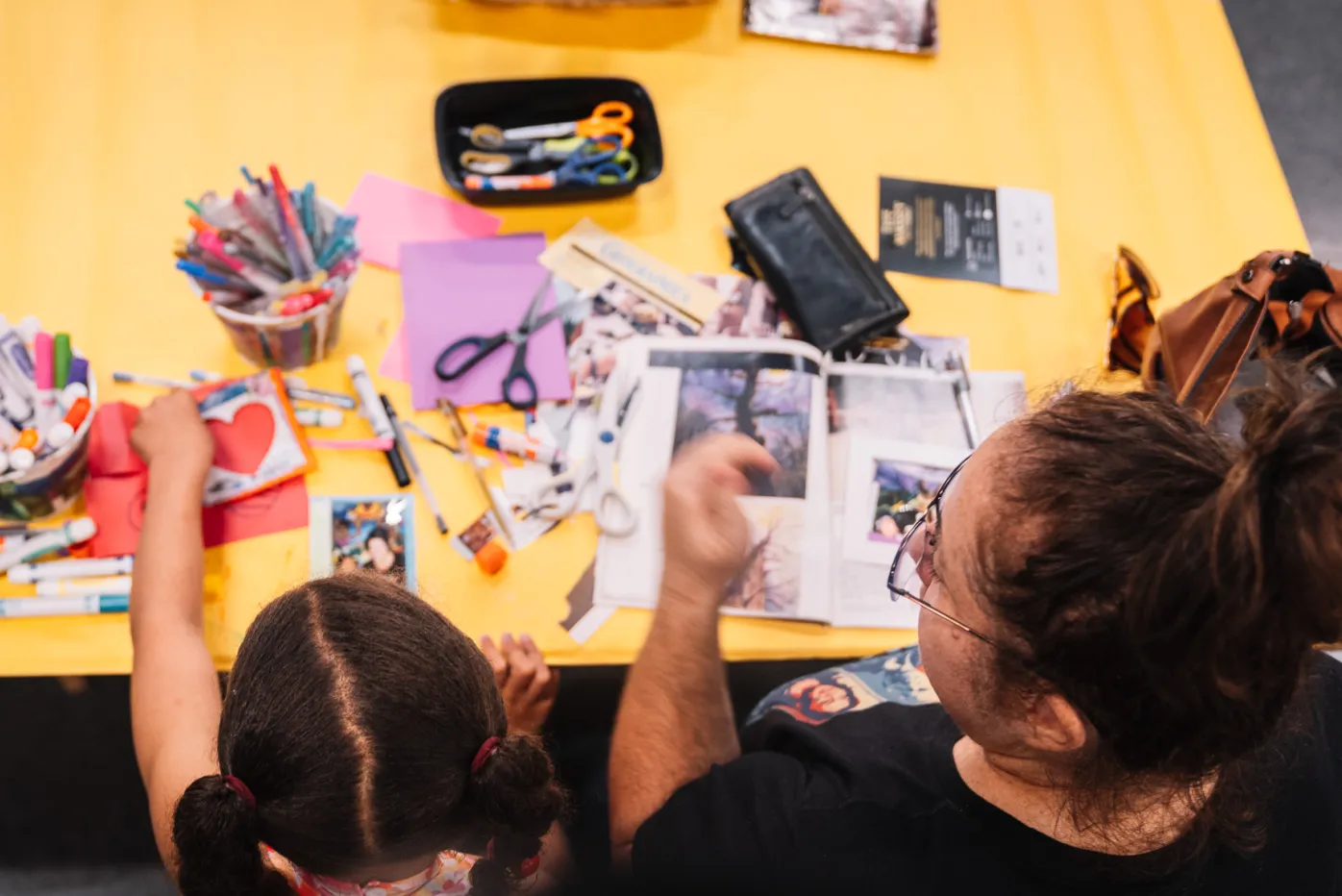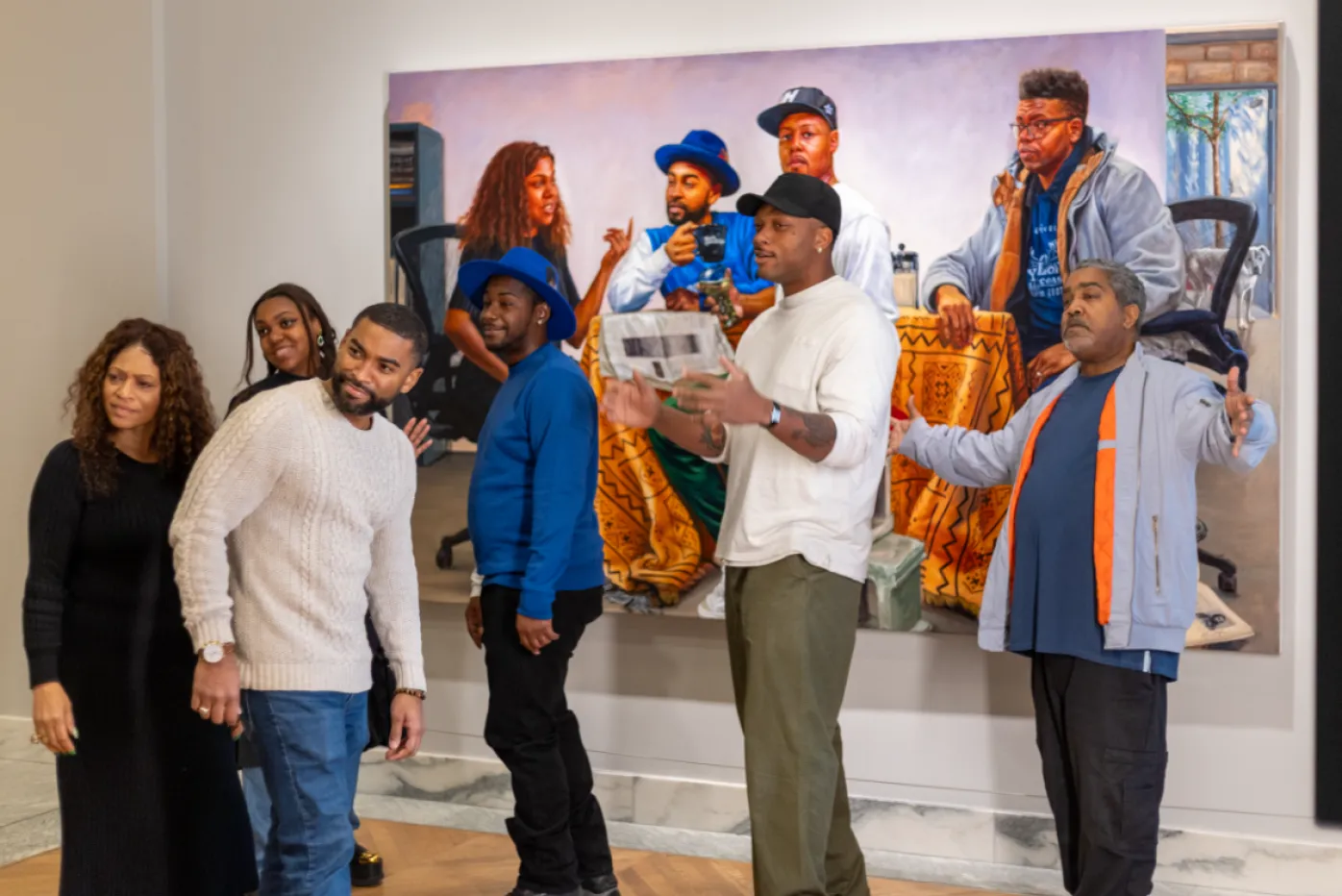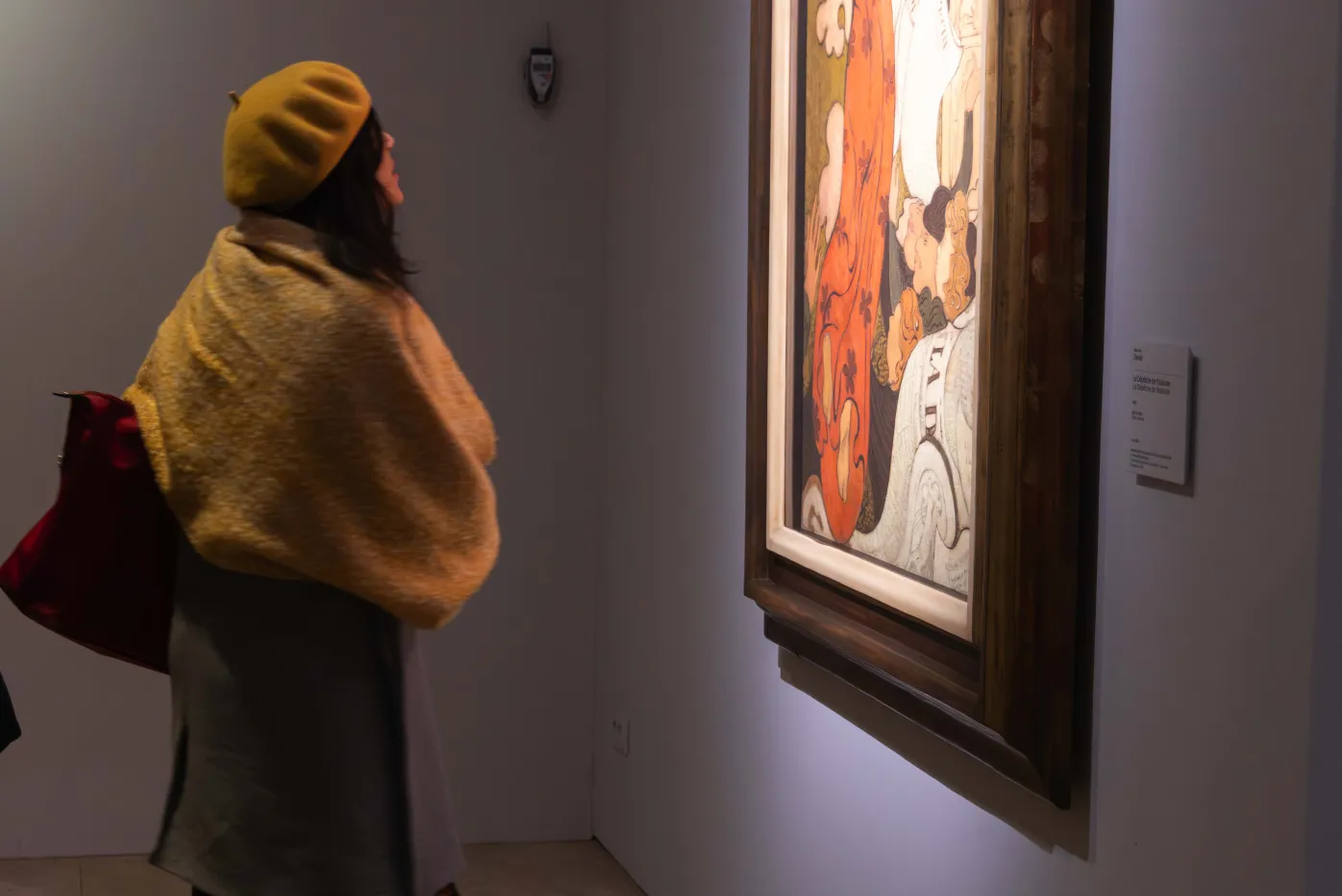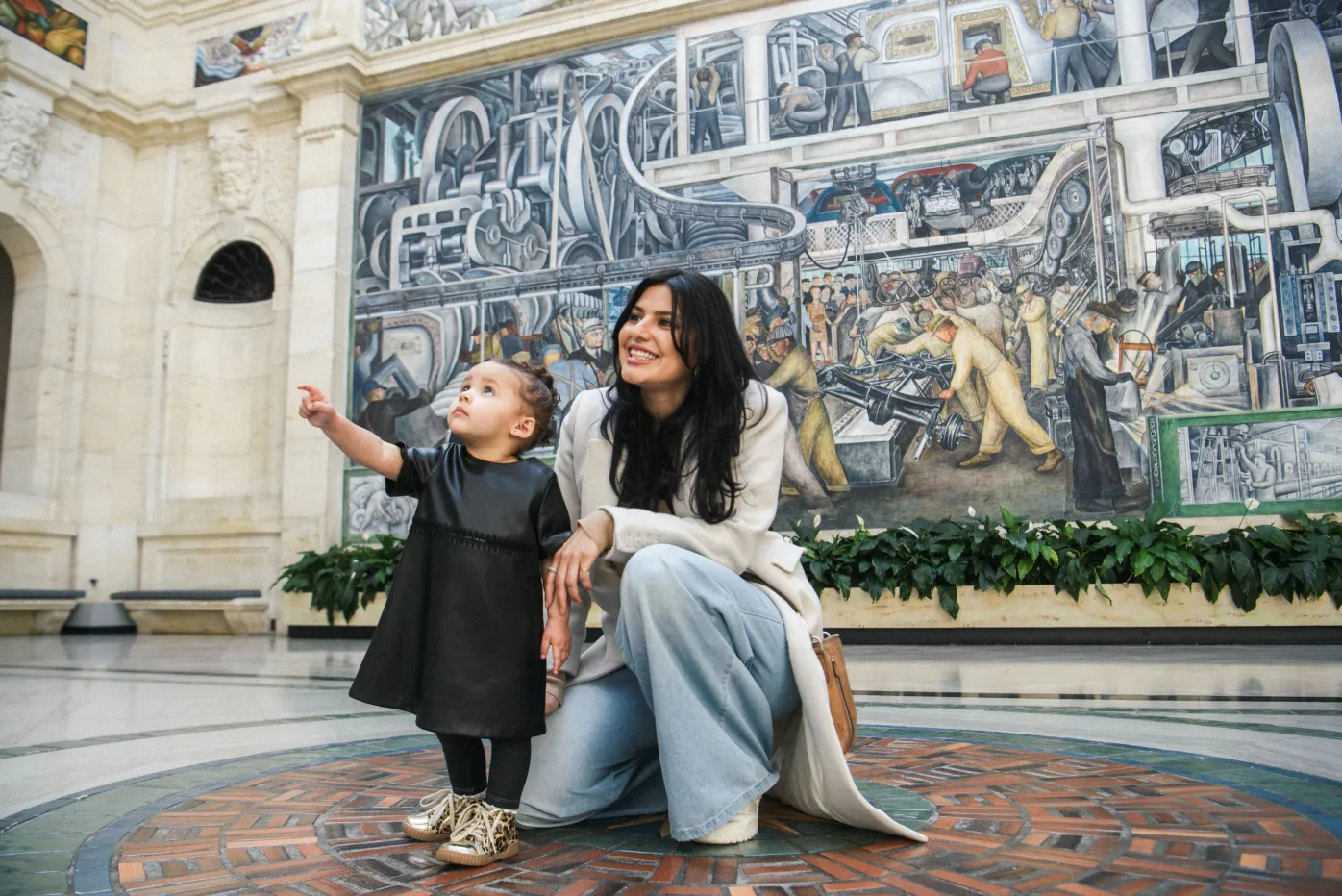Do visitors feel seen in our museum? Are we recognizing both visible and invisible disabilities? How can we make each person’s day better by anticipating their needs? Asking and answering questions like these is an important part of our work here at the Detroit Institute of Arts. Creating an inclusive environment requires a consistent, thoughtful commitment to every visitor’s experience.
You’ll often hear me say that the museum is a gathering place for all. That promise comes with a responsibility—not just to welcome everyone through our doors, but to ensure full access to what we offer. Our new quarterly pilot programs, Sensory Friendly Saturdays and American Sign Language (ASL) interpretation during Big Picture Tours, show our commitment to inclusion and accessibility so we provide an extraordinary visitor experience for everyone.
Sensory Friendly Saturdays launched in May. These artmaking experiences are designed for neurodivergent individuals who thrive in a structured, quiet, low-light environment. Our Artmaking Studio staff provides tools like adaptive scissors, noise-canceling headphones, and fidget toys. These one-hour sessions begin before the regularly scheduled, often-busy Drop-in Workshops. Spread the word: Upcoming sessions will be held on August 2 and November 1, both from 11 a.m. to Noon. And please remember, field trips can include the same accommodations upon request.
Many of you are familiar with our free Big Picture Tour, led daily by one of our knowledgeable docents. Most visitors can join on a whim; that’s not the case for our Deaf or hard-of-hearing guests. While the museum does offer ASL interpretation upon request with two weeks' notice, we’re now including it automatically once per quarter. You'll also see ASL interpreters at many of our public lectures and public programming events.

An ASL interpreter engages with Big Picture Tour participants
Developing programs and anticipating our visitors’ needs requires diligence and teamwork. That’s why we hired our first Accessibility Specialist about a year ago. She regularly checks in with front-line staff and collaborates across departments to help identify more opportunities for access. Her collaborations with Public Programming, Curatorial, and auxiliary groups help make accessibility a foundational part of our events.
These new programs build upon long-standing initiatives like providing complimentary wheelchairs and scooters; welcoming service animals; and offering accessible parking, entrances, and restrooms. We also offer real-time captioning (CART), ASL interpretation, and descriptive tours upon request with two weeks' notice. Thanks to some important audio upgrades implemented last year, we can now offer assistive listening devices in key spaces like the Detroit Film Theatre, Rivera Court, and the Great Hall. In 2022, we partnered with DeafC.A.N.! in Oakland County to create our Art in ASL video series—with captioning, audio description, and ASL interpretation—that’s designed for Deaf and DeafBlind audiences.
One of my favorite parts of working here is noticing individuals marvel at Rivera’s Detroit Industry Murals or a moving Friday Night Live! performance. Seeing joy on people’s faces, hearing laughter, watching memories in the making. When guests feel seen, they’ll come back again and again. And we welcome them—not just with our words, but with our actions.
If you have questions about accessibility, you’ll find more information here.



